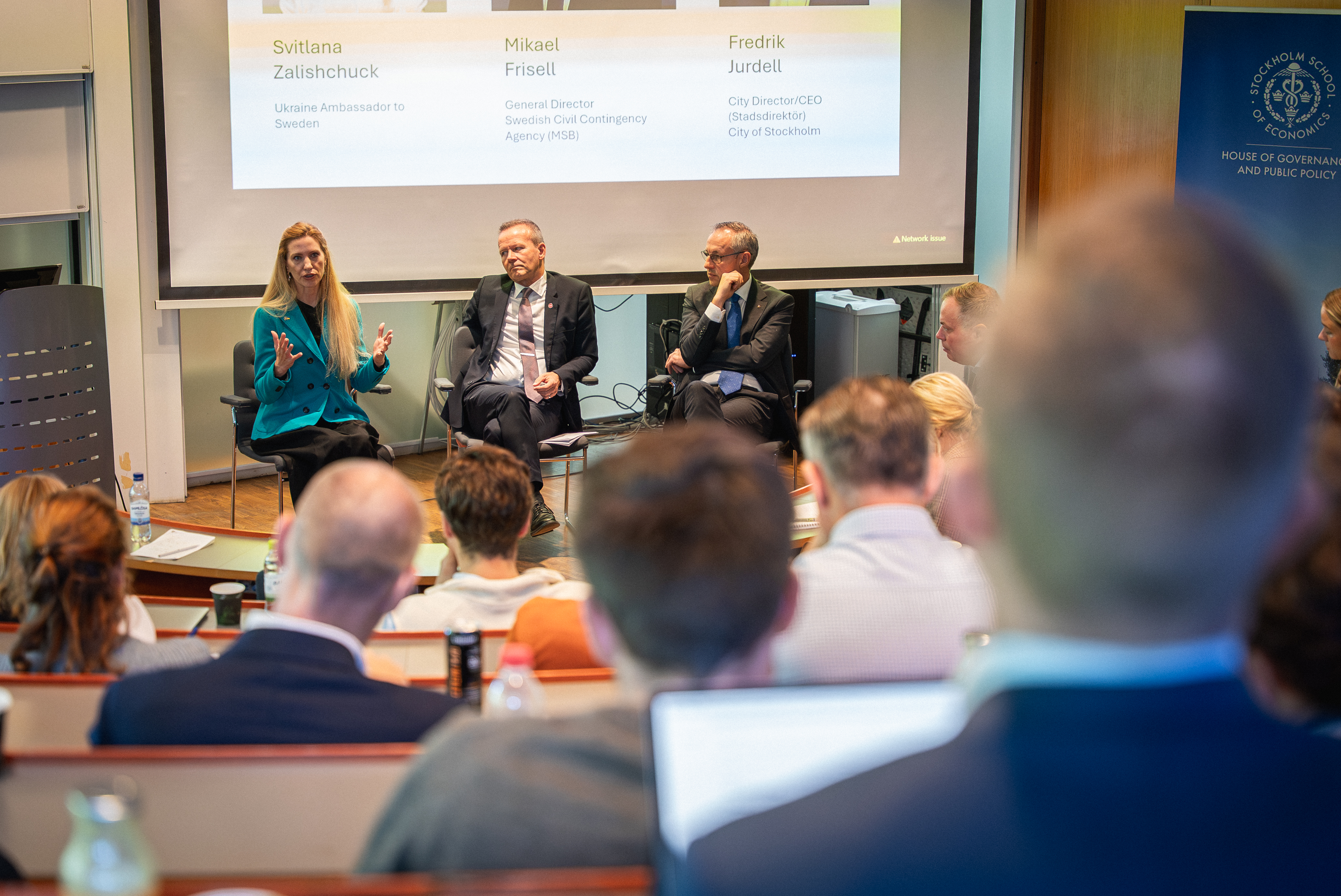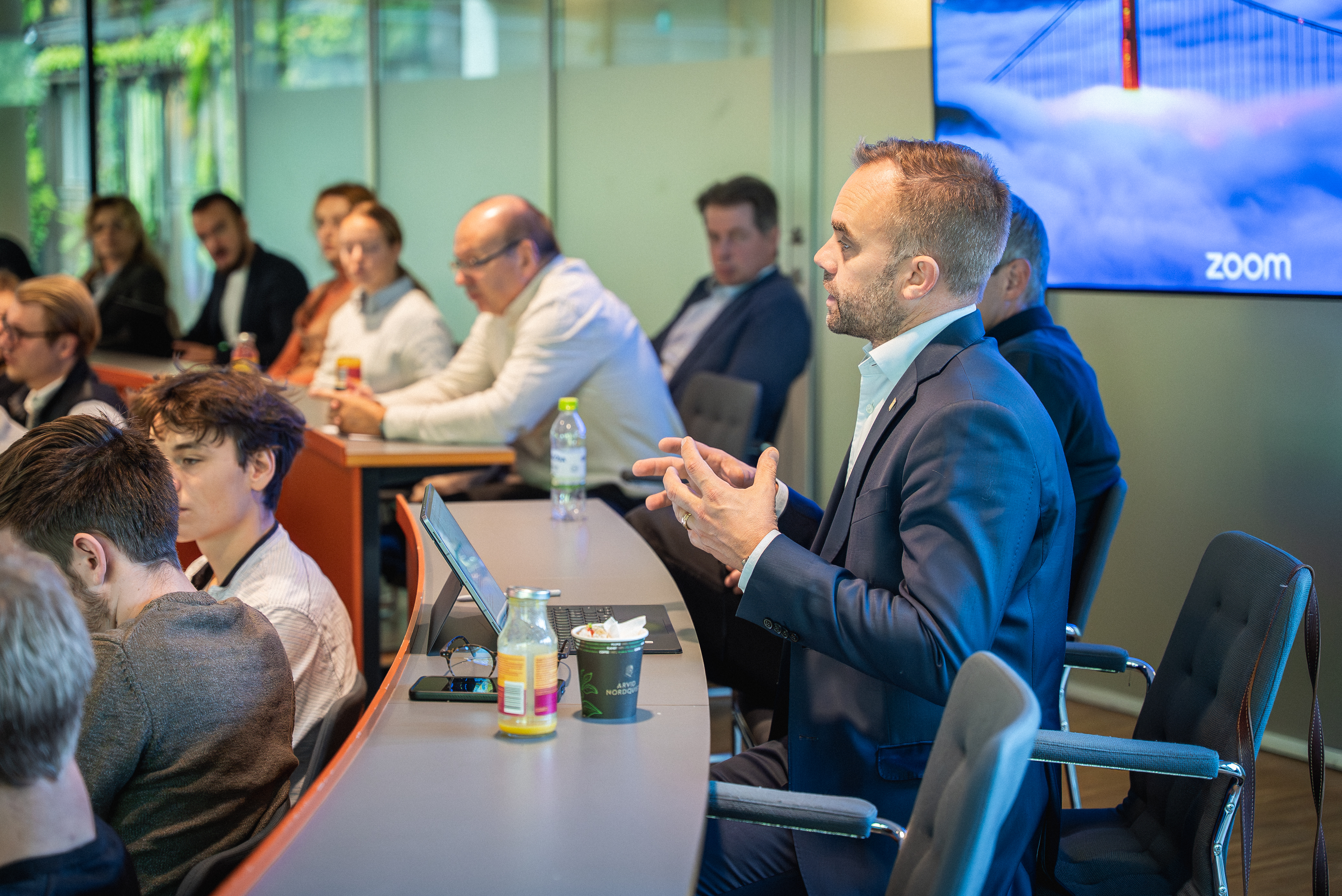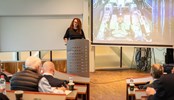Preparing for crisis: Lessons from Ukraine and challenges for Sweden
The session opened with remarks from Svitlana Zalishchuk, Ambassador of Ukraine to Sweden, who emphasized that defence is a whole-of-society effort. In Ukraine, mayors and local communities became the first responders, securing critical infrastructure and building trust when central resources were delayed.
Mikael Frisell, Director General of the Swedish Civil Contingencies Agency (MSB), stressed that Sweden faces similar vulnerabilities. Civilian infrastructure is a deliberate target in modern conflicts, and municipalities must be placed at the center of crisis planning. He highlighted the need for cross-sector cooperation - between state, municipalities, businesses, academia, and civil society - to build both short- and long-term capacity.

Panel participants in discussion. Photo: Edvin Landvik
A panel discussion followed, featuring insights from Swedish and international experts, including Svitlana Zalishchuk, Mikael Frisell, and Fredrik Jurdell, Director of the City of Stockholm. Together, they explored what crisis preparedness requires from governments, businesses, and civil society - and what lessons can be drawn from both Sweden and Ukraine.
The key takeaway: Preparing for crisis is not only about military readiness. It is about ensuring that society as a whole, from electricity and water to healthcare and schools, can endure, adapt, and continue functioning under threat.

Participants engaging in discussion during the seminar. Photo: Edvin Landvik




